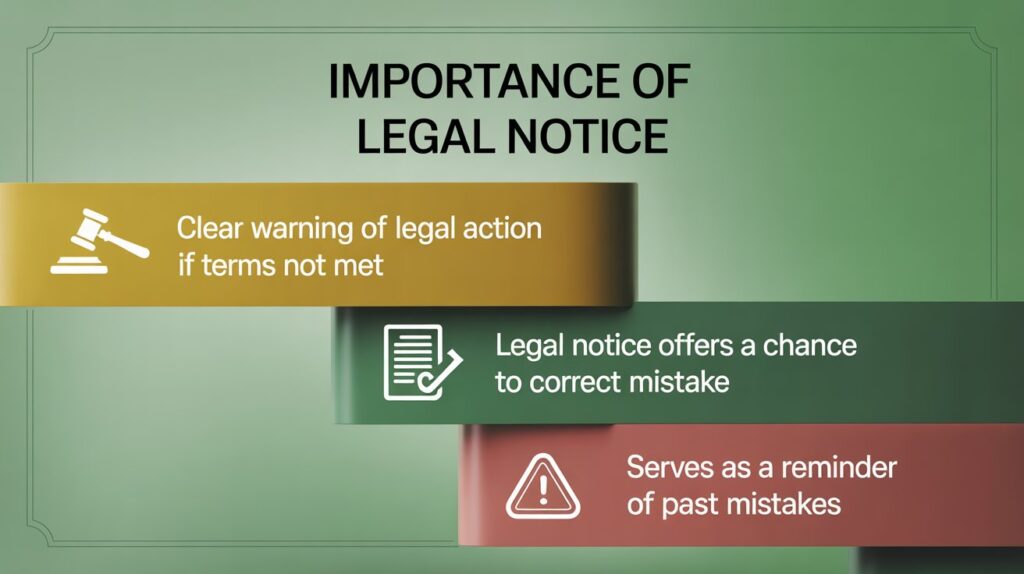



End-to-end certification and regulatory compliance for Indian and global markets.
 BIS Certification
BIS Certification
 CDSCO
CDSCO
 CPCB
CPCB
 LMPC
LMPC
 WPC Approval
WPC Approval
 Global Approvals
Global Approvals
 TEC
TEC
 ARAI
ARAI
 BEE
BEE
 ISO Certification
ISO Certification
 Drone Registration
Drone Registration
 NOC For Steel
NOC For Steel












































Apart from product certification, BIS is responsible for framing Indian Standards, conducting laboratory testing, and ensuring consumer protection.
Some items must be certified before they get released mysteriously made for select goods like cables, switches, cement, gas cylinders, etc.
It ensures electronic products conform to Indian Standards (IS).Covers 70+ products including laptops, phones, adapters, TVs, and batteries.
Hallmarking Certification is mandatory in India for gold and silver jewellery.The BIS 916 Hallmark confirms 22K gold purity.Silver Hallmarking is compulsory for certain grades like BIS 925.
FMCS Mark Certification is a BIS-led approval process that enables foreign manufacturers to sell regulated products in the Indian market.
It helps manufacturers build trust and create a compliance framework. It also markets to eco-conscious consumers.This guide will detail eligibility, provide information on the application procedure, and outline benefits of certification to ISO 14024.
It is governed by NABL under the Quality Council of India (QCI).Accreditation enhances trust among regulators, industries, and global partners.
The World Manufacturer Identity (WMI) is a globally recognized code used to identify vehicle manufacturers. WMI registration ensures traceability, compliance, and global brand recognition for automotive makers.
Diligence Certifications is a top-tier name in drug licensing and provides topmost service and knowledge support to all sizes of pharmaceutical companies. Our seasoned team understands the global regulations and has seen several success stories.
End-to-end certification and regulatory compliance for Indian and global markets.
 Business Registration
Business Registration


















End-to-end certification and regulatory compliance for Indian and global markets.
 Legal Services
Legal Services






































If you’re dealing with a legal dispute—be it unpaid dues, breach of contract, or a property conflict—you may already be advised to issue a legal notice. It’s not just a formal document but a legal instrument that often determines how smoothly or aggressively your case may progress. A legal warning is a structured warning to the other party before legal action. It highlights your claim, invites negotiation, and documents intent. The value of a properly drafted and served notice can be immense—it can save months of litigation and lakhs in court expenses. Here’s everything you need to know to get it right from the start.
A legal notice is a formal, written communication issued by one party to another before taking legal action. It serves as a warning and provides an opportunity for the other party to resolve the issue amicably within a specified time. In Indian law, it is often a prerequisite in civil and commercial matters. For instance, Section 80 of the Code of Civil Procedure mandates that a legal notice be served to a government entity or public officer before initiating a suit against them. Similarly, under Section 138 of the Negotiable Instruments Act (for cheque bounce cases), the complainant must serve a legal notice within 30 days of dishonour.
The legal warning ensures that the aggrieved party places its grievance on official record and gives the recipient a chance to act in good faith. This not only helps reduce the burden on courts but also improves chances of out-of-court settlement. Most importantly, it strengthens the sender’s legal standing, should the matter escalate to litigation.
You should consider sending a legal notice when your personal or professional rights are being violated, and previous attempts at resolution have failed. Here are the most common circumstances:
Why it’s beneficial:
In 2023, a Gurgaon-based interior designer recovered ₹3.8 lakh in pending fees from a client after her lawyer issued a 7-day legal notice. The client paid within five days—no court visit, no hassle. Legal notices work when delivered effectively.
Note on Elements of Legal Notice
Section 80 of the Code of Civil Procedure, 1908 states, ` By law, a legal notice must be filed by an aggrieved person in civil proceedings before commencing an action. The notice must clearly express:
A full legal warning should contain a detailed statement of the grievance, the consequences for the sender, and the offered terms for settlement. This process should assist both parties in determining the best path to a settlement, if an agreement can be reached.
A legally valid Legal Notice Format must include the following components:
Header and Date
The notice should be on the advocate’s letterhead (if using one), or the sender’s letterhead in case of self-drafting. The top right corner should include the date. Also mention the dispatch mode just above the subject line (e.g., “By Registered Post” or “By Courier”).
Recipient & Sender Details
The full name, residential or office address, contact details (phone/email), and PIN codes of both the sender and the recipient must be clearly mentioned. For businesses, use the registered office address.
Subject Line
Use clear, concise language to describe the nature of the dispute. Example: “Legal Notice Regarding Outstanding Invoice Payment – ₹2,15,000/- Dated 17th April 2025”
Statement of Facts and Grievance
This section forms the backbone of your notice. Explain:
Facts should be chronological and specific, and avoid emotional or defamatory tone.
Legal Basis & Relief Demanded
Cite the applicable legal provisions (e.g., Section 138 of the NI Act, Section 73 of the Indian Contract Act). Then clearly mention what relief is being sought—be it payment, compliance with terms, or cessation of wrongdoing. Include a defined deadline (usually 15 to 30 days) for compliance.
Consequences & Signature
State what action will be taken if the recipient fails to respond—such as legal proceedings, civil or criminal case, or consumer complaint. Conclude with the place, date, and advocate’s signature (or your own if self-drafting), and mention that a copy is being retained.
Legal Notices are key to the process of dispute resolution and have several benefits.
A legal warning communicates your intention, formally, to commence legal action if the issue is not resolved. It gives notice to the other party as to the grievance you have and the potential repercussions they will face if it comes to court.
A legal document is a written form of communication that will provide evidence of any claim to establish that you have taken the first legal step. This will become important in any litigation.
A well-drafted legal notice format outlines the complaint (s), the relief you seek, and any legal remedies that are applicable while providing an opportunity for amicable resolution during a stated time. This often results in the adverse party willing to settle outside of court.
Because a legal document and any reply to it are formal written statements, those statements are clearer than informal oral communication and provide a basis for negotiations and a greater opportunity for mutual agreement.
A legal Intimation is a cost-effective way to assert your legal rights compared to the process of formal litigation. Although costs can vary proportionally to the amount of work involved and who provides the service, in general, this method is the cheaper option.

Drafting a legally compliant and persuasive notice is essential. Here’s how:
Real-world analogy: Think of legal notice drafting as blueprinting a house—you can’t afford incorrect measurements. Every clause must be measured, aligned, and solid.
The strength of a legal notice depends not only on its content but also on its delivery.
Recommended Delivery Modes:
What to Keep:
A Mumbai-based IT consultant emailed and couriered a ₹1.2 lakh dues notice. The client called the next morning to settle. Dual-channel delivery ensured credibility.
Response Options for Recipient:
Your Next Steps:
Courts often check whether notice was served and responded to. Proper Legal Notice Filing and documentation support your claim and demonstrate your efforts to resolve matters out of court.
Mistakes in drafting or serving can render your notice ineffective or even backfire. Avoid:
According to Section 80 of the Code of Civil Procedure, 1908, a legal warning is required before working with a legal document and before instituting a suit against the opposite party if the opposite party is the State or a Public officer.
However, in the majority of civil cases, an advocate may send a legal notice before filing the lawsuit. This is not a legal requirement; instead, it is standard practice. At this step, many suits are settled out of court, and a legal warning is an indication to the opposite party that if the dispute is not resolved, the advocate will take legal action.
Important Details to Identify
Diligence Certifications is the partner of choice when it comes to not just your Legal Warning, but any Legal warning — from Legal Notice Drafting, to Legal Notice Filing, and everything in between. We understand that it is the essence of legal proceedings, therefore, we have put together a process to get your Legal document completed and sent with zero fuss.
Our firm’s qualified professionals ensure your Legal Notice Format is legally compliant, concise, and tailored to your specific case to (hopefully) get the results you are after. Whether you need to send a legal notice about civil disputes, contract breaches, or anything else, Diligence Certifications provides a valuable service and saves you time and effort!
Choose Diligence Certifications for expert advice, transparent pricing, and fast and easy assistance for all your Legal document needs — because we recognize that it is important that you have peace of mind.






















A Legal Notice is a formal written communication sent to a person or organization with the purpose of alerting them about a complaint and seeking resolution before commencing any legal proceedings.
A Legal warning is important because it is the first step at resolving a dispute amicably and it also serves as a warning to the recipient about potential legal action if no resolution has been reached.
The Legal Notice Format must include the sender's and receiver's details; a clear outline of the problem; relief sought; sections of law; and when the recipient should respond.
Yes, you can draft your Legal document, however, it is recommended that you seek the assistance of an expert in Legal Notice Drafting to ensure that your notice complies with legal standards and informs whether your claim is clear.
Legal warning can be sent by registered post with the acknowledgement due (AD) or courier to demonstrate proof of delivery. Please refer to the Diligence Certifications for reliable services to Send Legal warnings securely.
In most civil cases, the law requires that you file or send a Legal document that allows the other party one last opportunity to settle the dispute before you take them to court.
Using professionals to file your Notice means that your Legal document will be done accurately, done right within the legal framework, you will have a professional document, the service will be completed properly, and professionalism reduces the risk of time delays in the process.
Once completed and approved, a Legal warning typically takes 1-3 working days to send, depending on how you send it and where the other party is located.
Yes, Legal warnings are drafted specifically based on the details of your case and whether it is related to a contract dispute, property issues, cheque bounce, or employment.
If they do not respond in the timeframe you specified, or at all, then you can commence a suit or other actions (as the Legal intimation will be proof you tried to resolve the situation).
Diligence Certifications provides trusted Legal Notice Drafting, a correct Legal Notice Format, on-time Legal Notice filing, and professional service to ensure that your legal matters are managed professionally and effectively.

